Understanding how long fish can go without food is crucial for every aquarium. Whether planning a vacation or dealing with an emergency, knowing your fish’s feeding requirements ensures their well-being. Fish have varied feeding habits depending on their species, age, and environment, influencing how long they can survive without food.
In this article, we’ll explore how long different types of fish can go without food and the factors that affect their survival. We’ll also provide essential tips for preparing your fish for extended periods without feeding. Additionally, we’ll answer related questions, offer practical advice, and address common concerns about fish feeding and care.
By the end of this article, you’ll have a comprehensive understanding of fish feeding needs. You’ll be better prepared to ensure your fish remain healthy, even when you can’t feed them daily. Let’s dive into the specifics of fish feeding and care.
How Long Can Fish Go Without Food?
Depending on several factors, fish can go without food for varying lengths of time. These include the species of the fish, their age and size, their health condition, and the water temperature and environment they live in. Generally, healthy adult fish survive longer without food than younger or sick fish.
The fish species play a significant role in determining how long they can go without food. For example, goldfish are known for their resilience and can often survive for up to two weeks without food. In contrast, more delicate tropical fish may only last a few days without sustenance.
Age and size also affect how long fish can survive without food. Juvenile fish require more frequent feeding due to their rapid growth rates. On the other hand, adult fish, especially larger ones, have more fat reserves and can endure more extended periods without food.
Health condition is another crucial factor. Healthy fish with robust immune systems and optimal metabolism can endure longer without feeding. However, stressed or sick fish may only survive for a short time without food.
Water temperature and the overall environment also play a vital role. Warmer water typically increases metabolic rates, causing fish to require more frequent feeding. Conversely, cooler water can slow metabolism, allowing fish to survive longer without food.
| Factor | Impact on Survival Without Food |
|---|---|
| Species of Fish | Different species have varied tolerance. Goldfish can survive up to two weeks, while tropical fish last only a few days. |
| Age and Size of Fish | Juvenile fish need more frequent feeding, while larger adult fish can survive longer due to fat reserves. |
| Health Condition | Healthy fish with strong immune systems last longer than stressed or sick fish. |
| Water Temperature | Warmer water increases metabolic rates, requiring more frequent feeding. Cooler water slows metabolism, extending survival. |
Understanding these factors helps you prepare your fish for periods without food. Considering species, age, health, and environment, you can ensure your fish remains healthy even during feeding gaps.
Factors Influencing Fish’s Ability to Go Without Food
Species and Type of Fish
Different fish species have varying metabolic rates and nutritional requirements. Freshwater fish, like goldfish, are generally hardier and can survive longer without food compared to some tropical fish. Saltwater fish, on the other hand, often require more frequent feeding due to their higher metabolic rates.
Understanding the specific needs of your fish species is crucial. For example, betta fish can survive without food for about a week, but it could be better. Meanwhile, some catfish species can go without food for several weeks due to their slow metabolism.
Age and Size of Fish
The age and size of your fish significantly impact their feeding needs. Juvenile fish require more frequent feeding due to their rapid growth rates. Conversely, adult fish, especially larger ones, can go longer without food as they have more fat reserves.
Smaller fish generally have higher metabolic rates and may need to be fed more often. In contrast, larger fish with more significant body mass can survive longer without food. It’s essential to adjust feeding schedules based on the age and size of your fish.
Health and Metabolism
A fish’s health and metabolic rate are crucial in determining how long it can go without food. Healthy fish with a robust immune system and optimal metabolism can endure longer without feeding. However, already stressed or sick fish may only survive quickly without food.
Monitoring the health of your fish is vital. Regular health checks and maintaining a clean, stress-free environment will help your fish cope better during feeding gaps.
Water Temperature and Environment
Water temperature affects a fish’s metabolism, influencing how quickly they burn through their energy reserves. Warmer water typically increases metabolic rates, requiring more frequent feeding. Conversely, cooler water can slow metabolism, allowing fish to survive longer without food.
Maintaining stable water conditions is essential. Sudden temperature changes can stress fish and affect their ability to go without food. Always ensure your aquarium environment is optimal for your fish species.
Preparing for Extended Periods Without Feeding
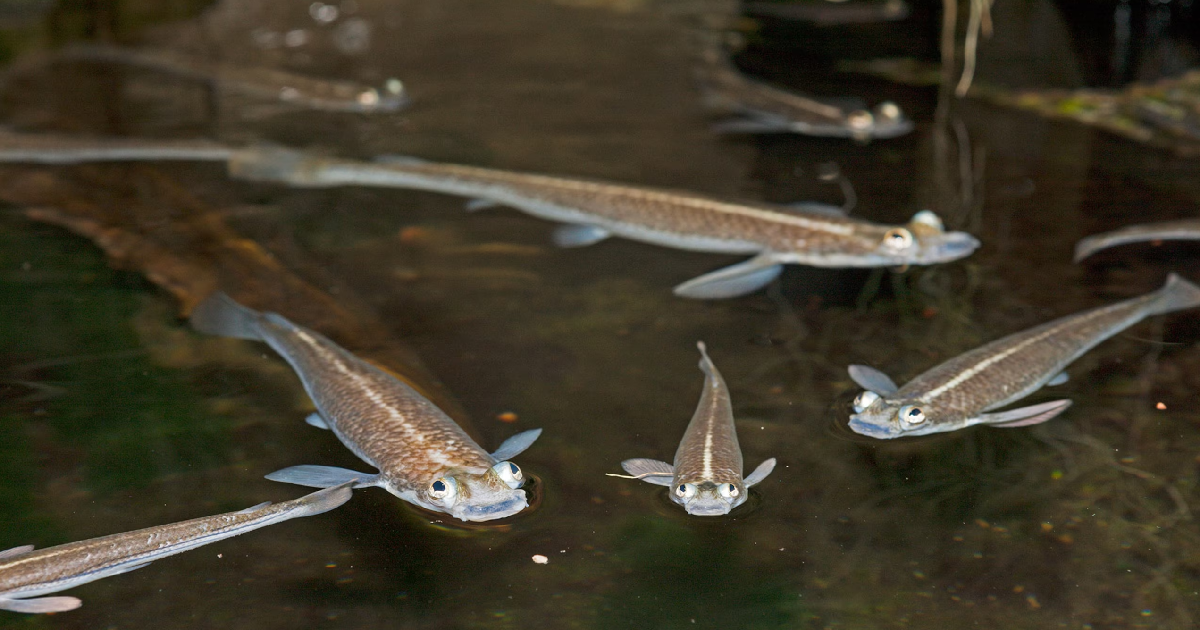
Pre-Trip Preparation
Preparing your aquarium and fish before leaving for an extended period is crucial. Adjusting the feeding schedule a few days before departure can help acclimate fish to less frequent feeding. Offering nutrient-dense foods can also ensure they have enough reserves to last through the feeding gap.
Automatic Feeders and Vacation Feeders
Automatic feeders can be a lifesaver for fish owners who travel frequently. These devices can be programmed to dispense food regularly, ensuring your fish get the nutrition they need. However, testing these feeders before relying on them is essential, as malfunctioning could lead to overfeeding or starvation.
Vacation feeders are another option. These are slow-release food blocks designed to dissolve gradually, providing a steady food supply over several days. They are convenient but should be chosen carefully to meet your fish’s dietary needs.
Feeding Alternatives
In some cases, using live plants or algae in the tank can provide a natural food source for fish. Certain fish species can graze algae or nibble on plants, sustaining them for short periods. Introducing tank mates that produce natural food sources, like shrimp or snails, can also help.
Ensuring your tank has these natural feeding alternatives can be beneficial. It provides your fish with a continuous, albeit limited, food supply, reducing the risk of starvation.
Do Fish Need to Be Fed Every Day?
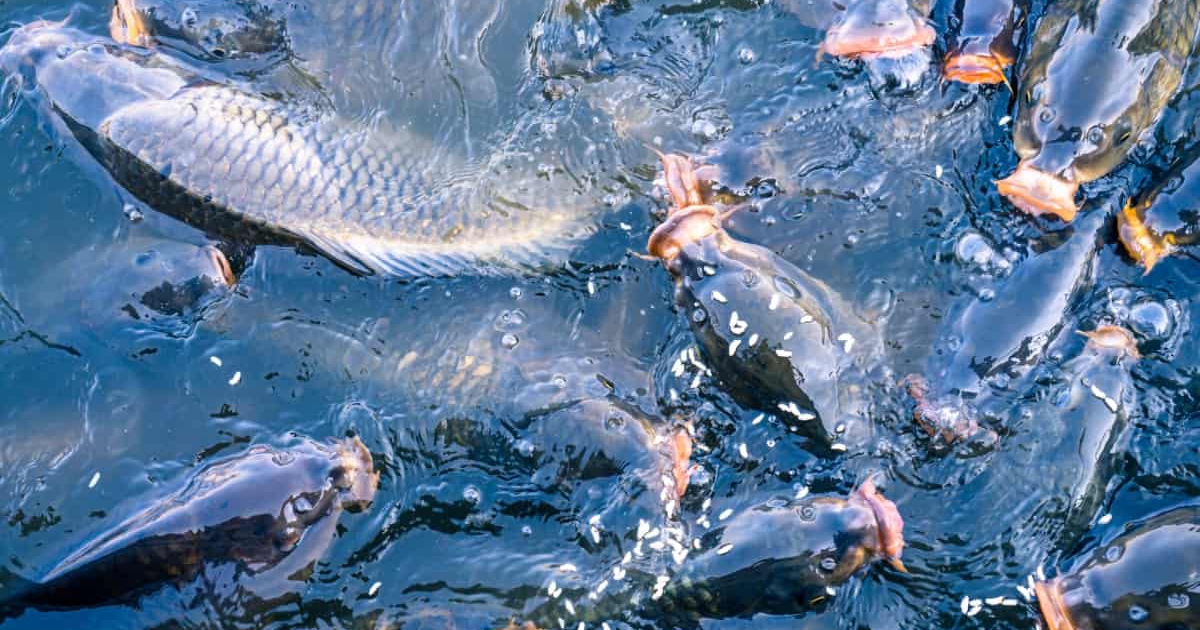
Daily Feeding Needs
Most fish benefit from daily feeding, providing a consistent source of nutrition and energy. Regular feeding helps maintain their metabolic rate and supports their overall health. However, the specific feeding frequency can vary based on the fish species and their natural feeding habits.
Exceptions to Daily Feeding
Some fish species do not require daily feeding. For instance, certain predatory fish can thrive on larger meals given less frequently. Similarly, herbivorous fish graze on algae or plants and might only need supplemental feeding daily sometimes. Understanding the natural dietary habits of your fish is critical to determining their feeding schedule.
Signs of Overfeeding and Underfeeding
Recognizing the signs of both overfeeding and underfeeding in fish is crucial. Overfeeding can lead to health issues like bloating and poor water quality while underfeeding can result in lethargy and weakened immunity. Observing your fish’s behaviour and adjusting feeding accordingly ensures their well-being.
Can Goldfish Survive 2 Weeks Without Food?
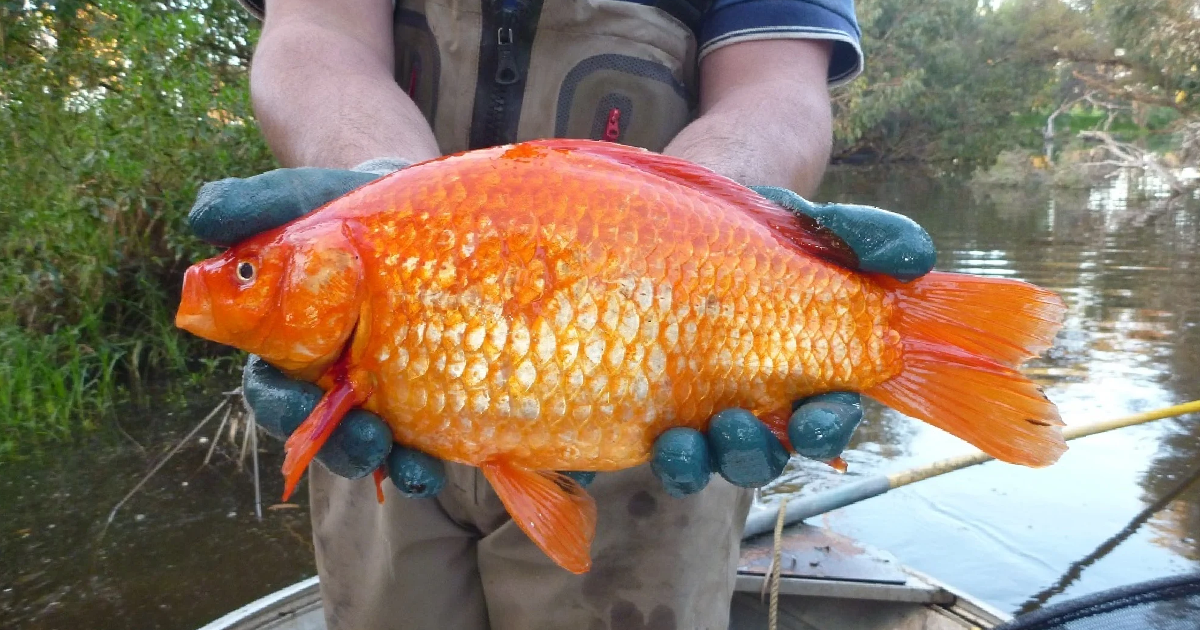
Goldfish Feeding Habits
Goldfish are known for their hardy nature and can survive longer periods without food than many other fish species. Their feeding habits allow them to store energy in fat reserves, which they can utilize during periods without food.
Survival Mechanisms
Goldfish have evolved to endure short-term food shortages. They can slow down their metabolism and utilize their stored energy efficiently. However, while they can survive up to two weeks without food, it’s not ideal and should be avoided.
Preparing for Absence
Proper preparation is essential if you need to leave your goldfish without food for an extended period. Ensuring the tank is clean, optimal water quality, and the fish are healthy before you can help them cope better. Using automatic or vacation feeders can also provide a steady food supply in your absence.
How Long Can Fish Survive Without a Filter?
Importance of Filtration
Filters play a vital role in maintaining aquarium water quality by removing waste and ensuring proper oxygenation. Without a filter, waste products can accumulate, leading to better water conditions and stress for fish. Understanding the importance of filtration helps maintain a healthy aquarium environment.
Short-Term Survival Without a Filter
Fish can survive short-term periods without a filter, depending on the tank size, stocking levels, and species. Smaller tanks with higher stocking levels are more susceptible to rapid water quality degradation. In larger, well-planted tanks, fish might survive longer without a filter.
Emergency Measures
If your filter stops working, it’s crucial to take immediate action. Performing partial water changes, reducing feeding, and using air stones or battery-operated pumps can help temporarily maintain water quality. Regularly monitoring water parameters during this period is essential to prevent harmful conditions.
How Long Can Fish Live Out of Water?
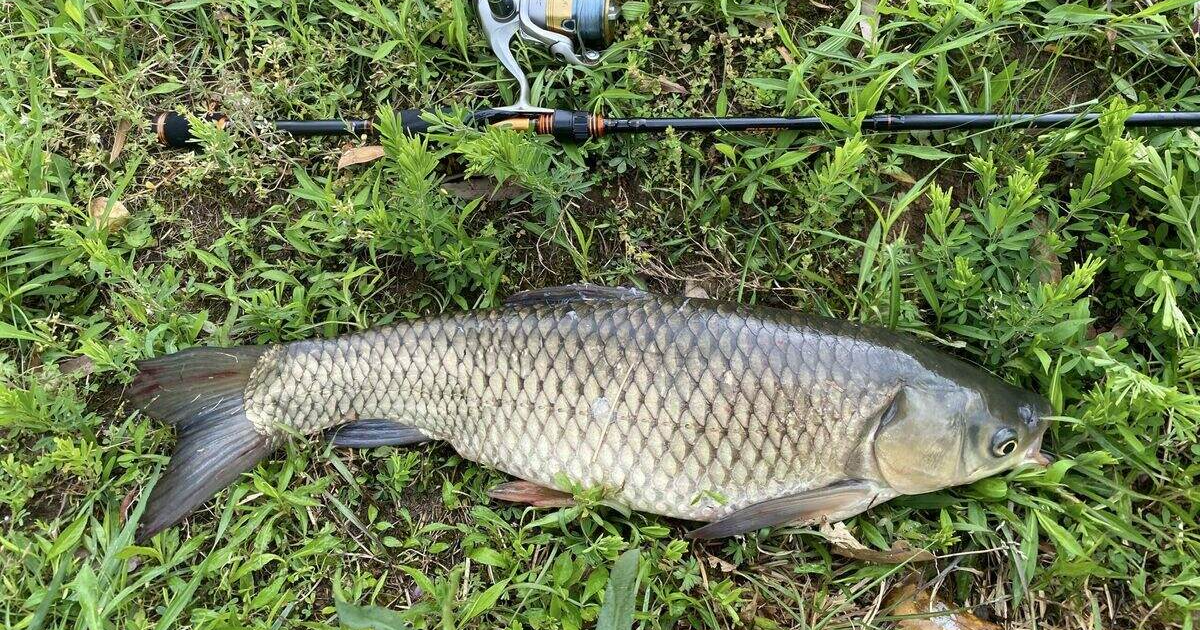
Respiratory Systems of Fish
Fish rely on gills to extract oxygen from water, making them highly dependent on their aquatic environment. Their gills are designed to function in water, and exposure to air can cause them to dry out and stop functioning effectively.
Species Differences
Different fish species have varying tolerances for being out of water. Some fish, like lungfish and particular catfish
, can survive for extended periods out of water due to their ability to breathe air. However, most aquarium fish cannot survive long without water.
Emergency Situations
In emergencies where fish are out of water, acting quickly is crucial. Gently returning them to water and ensuring proper oxygenation can help revive them. Understanding your fish species’ specific needs and tolerances can also help you handle such situations effectively.
Conclusion
In conclusion, understanding how long fish can go without food and the factors influencing this duration is crucial for every fish owner. Proper preparation and knowledge of your fish’s needs can ensure their health and well-being during periods without feeding. Remember, while some fish can survive extended periods without food, guaranteeing a consistent and balanced diet is always best.
FAQs
1. How long can a goldfish go without food?
Goldfish can typically go without food for up to two weeks, but it’s not recommended to leave them unfed for that long.
2. Can tropical fish survive without food for a week?
Yes, most tropical fish can survive without food for a week, but it’s best to prepare if you’ll be away.
3. What should I do if I overfeed my fish?
Remove excess food, perform a partial water change, and monitor water quality.
5. How often should I feed my betta fish?
Betta fish should be fed once or twice a day, with occasional fasting days.
6. Is it okay to use an automatic feeder for my aquarium?
Yes, automatic feeders can be very useful, especially for short trips, but they must be properly set up and tested.
]]>Betta fish, often known as Siamese fighting fish, are popular pets known for their vibrant colors and elaborate fins. They originate from the shallow waters of Thailand, Cambodia, and Vietnam, where they navigate rice paddies and Stillwater canals. Understanding their basic care is crucial for any betta owner.
Proper feeding and knowing how long these fish can safely go without food are essential aspects of betta care. This knowledge is not just about maintaining their health; it’s also about ensuring their survival, especially when regular feeding schedules are disrupted. Awareness of betta fish fasting capabilities and survival can help prevent health issues and stress from inadequate care practices.
How Long Can Betta Fish Live Without Food?
Betta fish are known for their resilience and can survive without food for a surprising amount of time. Generally, a healthy adult betta fish can live without food for up to 14 days. However, this period should not be considered an ideal practice, as prolonged fasting can lead to health complications.
Several factors influence the fasting capabilities of betta fish. One crucial factor is the fish’s age and health. Younger bettas and those in poor health will have a shorter survival time without food compared to healthy, mature fish.
Environmental conditions also significantly affect how long a betta fish can survive without food. Betta fish thrive in warm water with stable temperatures between 76°F and 82°F. Drastic temperature changes can stress the fish, reducing their ability to survive without food.
Water quality is another important factor. Clean water with low levels of toxins such as ammonia and nitrites supports better health and increases the fish’s fasting tolerance. Regular water changes and proper filtration are essential for maintaining a healthy environment for your betta fish.
A balanced, stress-free environment is key to prolonging the survival of a betta fish without food. Minimizing stress by avoiding sudden changes in the tank setup and maintaining consistent feeding schedules helps keep the fish healthy.
Here’s a quick reference table summarizing the key factors influencing betta fish survival without food:
| Factor | Impact on Survival |
|---|---|
| Age and Health | Younger or unhealthy fish survive less |
| Water Temperature | Optimal: 76°F-82°F |
| Water Quality | Clean, low-toxin water |
| Stress Levels | Lower stress enhances survival |
Understanding these factors can help betta owners prepare for situations where feeding might be disrupted, ensuring the well-being of their fish.
What Affects Betta Fish Survival Without Food?
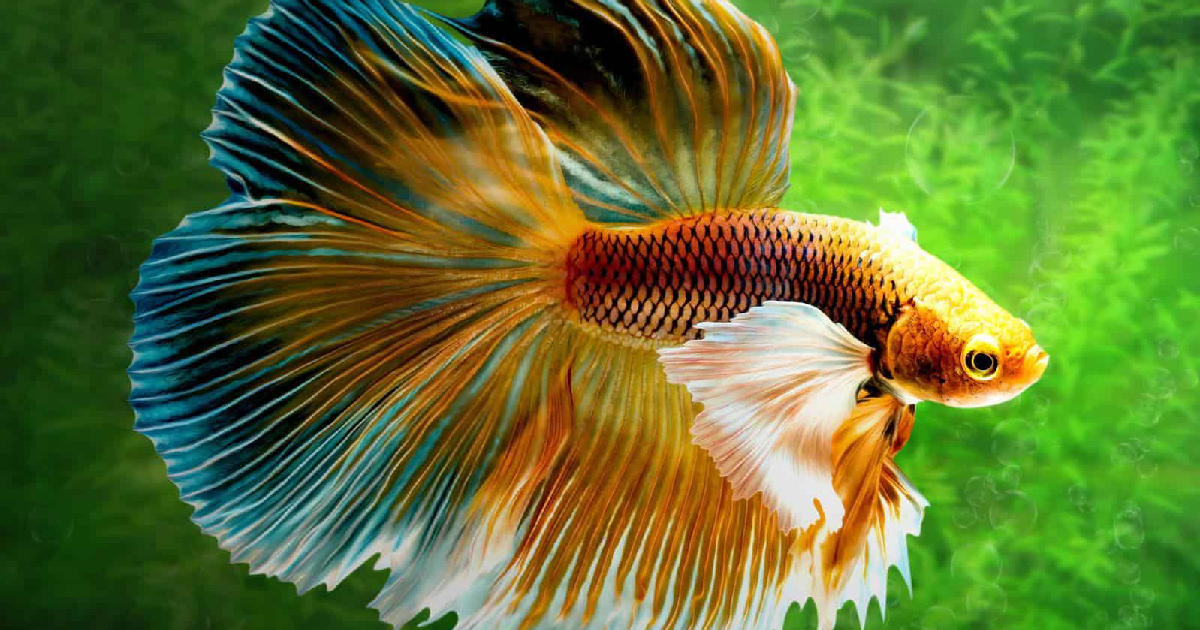
Several factors influence how long a betta fish can survive without food. Understanding these factors can help you better prepare and care for your Betta when feeding is disrupted. Key elements include the fish’s health and age, water quality and temperature, and stress levels.
Health and Age of Betta Fish
The health and age of a betta fish significantly impact its ability to survive without food. Young bettas and those in poor health have less energy reserves and a weaker immune system. This makes them less capable of enduring extended periods without nourishment.
Older and healthier bettas, on the other hand, have more body fat and muscle mass to rely on during fasting. Their stronger immune systems also help them cope better with the stress of not eating. However, even healthy bettas should not be subjected to prolonged fasting as it can still lead to health issues over time.
Water Quality and Temperature
Water quality is crucial for the overall health and survival of betta fish. Betta fish thrive in clean water with low toxins such as ammonia, nitrites, and nitrates. Regular water changes and proper filtration are essential for maintaining a healthy environment.
Temperature is another critical factor. Betta fish prefer warm water, with optimal temperatures ranging from 76°F to 82°F. Cold water can slow their metabolism, making it harder for them to survive without food. Sudden temperature changes can also stress the fish, further compromising their health.
Stress Levels
Stress is a significant factor that affects a betta fish’s ability to survive without food. Betta fish are sensitive to changes in their environment. High stress levels can weaken their immune system and reduce their chances of surviving a fasting period.
Minimizing stress involves maintaining a stable tank environment. Avoid sudden changes in water conditions, tank decor, and feeding schedules. Providing hiding places and ensuring the tank is not overcrowded can also help reduce stress.
Here’s a summary table of the factors affecting betta fish survival without food:
| Factor | Impact on Survival |
|---|---|
| Age and Health | Younger or unhealthy fish survive less |
| Water Quality | Clean, low-toxin water |
| Water Temperature | Optimal: 76°F-82°F |
| Stress Levels | Lower stress enhances survival |
By understanding and managing these factors, you can help ensure the well-being of your betta fish, even in situations where feeding may be temporarily disrupted.
Signs of Hunger in Betta Fish
Understanding the signs of hunger in betta fish is essential for their care. Recognizing these signs can help you ensure your Betta is well-fed and healthy. Betta fish display both behavioral and physical signs when they are hungry.
Behavioral Changes
Increased activity is one of the primary behavioral changes in a hungry betta fish. They may swim frantically around the tank, searching for food. This behavior is often accompanied by frequent visits to the surface, hoping to find food.
Another sign is glass surfing, where the fish repeatedly swims up and down the sides of the tank. This behavior indicates the fish is trying to find food outside its usual feeding spots. Betta fish might also become more aggressive or territorial when they are hungry.
Physical Signs
Physically, a hungry betta fish may appear thinner than usual. The body may look slightly sunken, especially around the stomach area. You might also notice that their colours are less vibrant when they last ate a while ago.
Another physical sign is a lack of energy. Hungry betta fish may become sluggish and less responsive. Their fins might droop and spend more time resting at the bottom of the tank.
What to Do If You Need to Leave Your Betta Fish Without Food
Sometimes, you might need to leave your betta fish without food for a few days. Proper preparation can help ensure your fish remains healthy during your absence. There are several steps you can take to prepare your Betta for fasting.
Preparing Your Betta Fish for Fasting
Before leaving, make sure your betta fish is well-fed with nutritious food. This will help build up their energy reserves. Clean the tank thoroughly to ensure optimal water quality.
Perform a partial water change to remove any waste and toxins. Maintaining a stable environment is crucial for reducing stress. Ensure the tank temperature is within the optimal range of 76°F to 82°F.
Alternative Feeding Options
If you will only be away temporarily, consider using slow-release food blocks. These blocks dissolve slowly, providing a steady food supply. However, they should not be used as a long-term feeding solution.
Another option is to have a friend or neighbour feed your Betta. Please give them clear instructions on how much and how often to feed. This can help prevent overfeeding, which can be harmful to your Betta.
Automatic Feeders: Pros and Cons
Automatic feeders can be a convenient solution for feeding your betta fish while you are away. They dispense pre-measured amounts of food at set intervals, helping ensure your Betta gets regular meals.
However, automatic feeders also have some drawbacks. They can sometimes malfunction, either overfeeding or underfeeding your fish. Testing the feeder before leaving is essential to ensure it works correctly.
How to Properly Feed Betta Fish
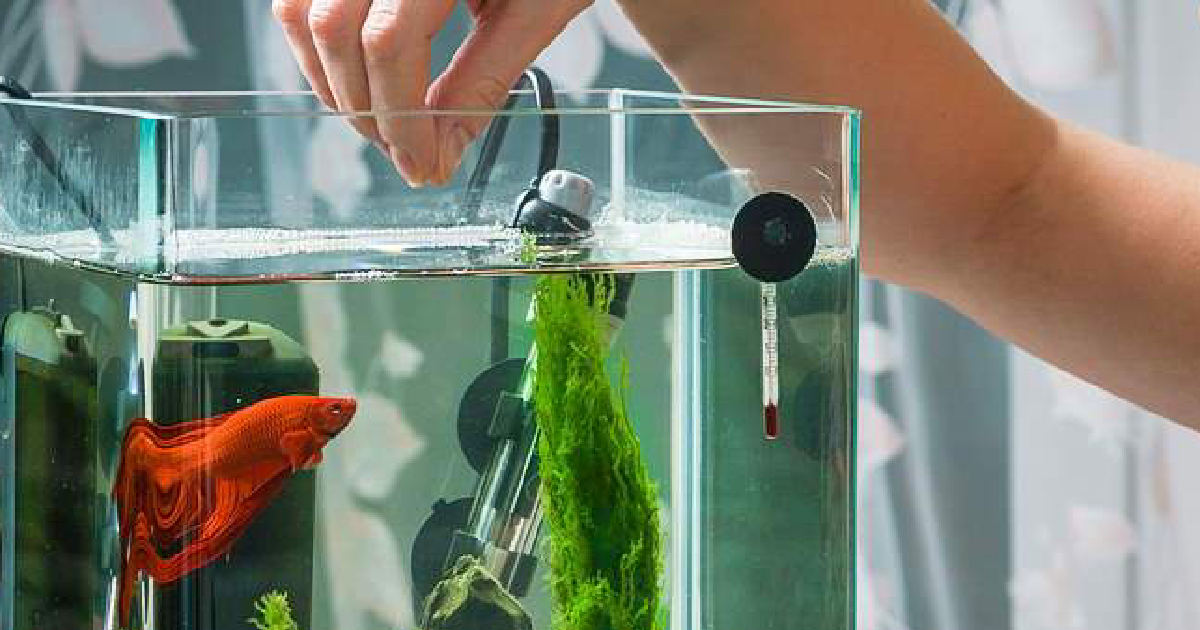
Proper feeding is essential for the health and well-being of your betta fish. Knowing the correct frequency, quantity, and type of food can help prevent common health issues. Avoiding overfeeding is also crucial to maintaining a clean and healthy tank environment.
Frequency and Quantity of Feeding
Betta fish should be fed once or twice a day. Each feeding should consist of a small amount of food the fish can consume within two minutes. Overfeeding can lead to obesity and other health problems.
Adjust the feeding schedule based on your fish’s activity level and health. If your Betta is particularly active, you may need to feed more. Conversely, if your Betta is less active, reduce the feeding amount.
Types of Betta Fish Food
Various types of food are suitable for betta fish. High-quality betta pellets are a staple diet that provides balanced nutrition. Supplementing with live or frozen foods like brine shrimp and bloodworms can enhance their diet.
Freeze-dried foods are also an option, but they should be soaked in water before feeding. This helps prevent digestive issues. Avoid feeding betta fish with food meant for other species, as it may not meet their nutritional needs.
Avoiding Overfeeding
Overfeeding is a common mistake among betta owners. It can lead to bloating, constipation, and poor water quality. To avoid overfeeding, use a small pinch of food for each feeding.
Remove any uneaten food after a few minutes to keep the tank clean. Monitor your Betta’s behavior and adjust the feeding amount if you notice signs of overfeeding.
By following these guidelines, you can ensure your betta fish remains healthy and vibrant. Proper feeding practices are crucial to maintaining their well-being and preventing common health issues.
Common Myths About Betta Fish and Feeding
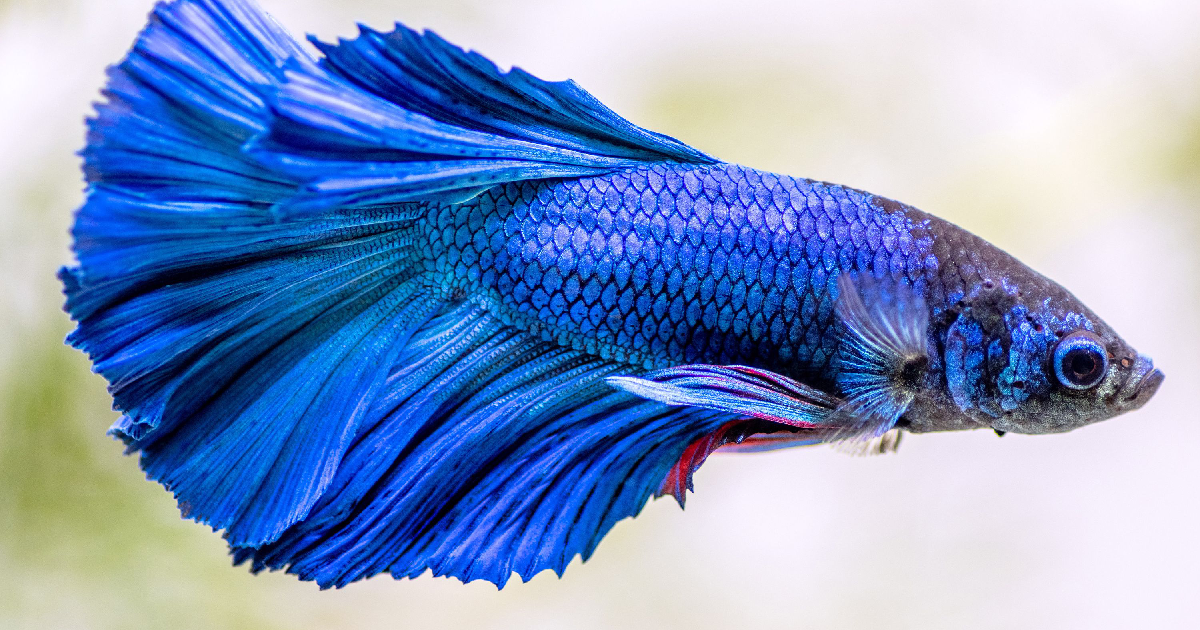
Many myths surround the care and feeding of betta fish. These myths can lead to improper care practices that may harm the fish. Understanding the truth behind these myths is essential for maintaining your Betta’s health and well-being.
Myth 1: Betta Fish Can Survive on Plant Roots
One common myth is that betta fish can survive by eating the roots of plants. This misconception often comes from the popularity of “betta vases,” where bettas are kept in small vases with a plant. The idea is that the fish will nibble on the plant roots for sustenance.
In reality, betta fish are carnivorous and require a protein-rich diet. Plant roots do not provide the necessary nutrients bettas need to thrive. Relying on plant roots for nutrition can lead to malnutrition and other health problems for your betta fish.
Myth 2: Betta Fish Don’t Need Daily Feeding
Another myth is that betta fish do not need to be fed daily. Some people believe bettas can survive on infrequent feedings without adverse effects. While betta fish can endure periods without food, regular feeding is crucial for their health.
Bettas have a high metabolism and need a consistent supply of nutrients to maintain their energy levels. Skipping daily feedings can weaken their immune system and reduce their lifespan. Feeding your Betta with small portions once or twice daily ensures they receive the necessary nutrients.
Myth 3: Betta Fish Can Eat Human Food
The idea that betta fish can eat human food is another harmful myth. Some betta owners might think feeding their fish bits of bread, fruits, or vegetables is OK. While these foods might seem harmless, they can harm betta fish.
Betta fish require a specific diet high in protein and tailored to their nutritional needs. Human food can upset their digestive system and lead to health issues. Sticking to high-quality betta pellets and appropriate live or frozen foods is best to ensure your fish’s health.
Here’s a summary table dispelling these myths:
| Myth | Reality |
|---|---|
| Betta Fish Can Survive on Plant Roots | Bettas need a protein-rich diet, not plant roots |
| Betta Fish Don’t Need Daily Feeding | Bettas require regular daily feedings |
| Betta Fish Can Eat Human Food | Human food can harm bettas; stick to betta-specific food |
Understanding and debunking these myths helps ensure that your betta fish receives proper care. A balanced diet and consistent feeding schedule are essential for their overall health and well-being.
Conclusion
In conclusion, understanding how long betta fish can survive without food is crucial for their care. We’ve explored the key factors affecting their survival: age, health, water quality, and stress levels. Recognizing the signs of hunger and preparing for periods when feeding might be disrupted are essential for maintaining a healthy betta.
Proper care and feeding routines are vital for the well-being of your betta fish. Regular, balanced feeding, optimal water conditions, and stress reduction contribute significantly to their health and longevity. Dispelling common myths about betta care ensures your fish receives the nutrition and environment needed to thrive.
Think about the environment you create for your betta fish. Every small action you take, from feeding to tank maintenance, shapes their world and directly impacts their quality of life. By being attentive and informed, you can ensure your betta fish lives a vibrant, healthy life.
In the end, the responsibility of pet ownership is not just about keeping a creature alive but enriching its life. Your betta fish, with its vibrant colors and curious personality, relies on you for its well-being. As you care for your Betta, remember that every effort you make sustains life and fosters a bond between you and a remarkable aquatic companion.
FAQs
1. Can Betta fish survive three days without food?
Yes, betta fish can survive for three days without food. While it is not ideal, healthy adult bettas can endure short fasting periods. However, regular feeding is essential for their health and well-being.
2. Is it OK to not feed my Betta for a week?
Leaving your betta fish without food for a week is generally not recommended. While bettas can survive for up to 14 days without food, this can lead to stress and health issues. If you must be away, consider using an automatic feeder or asking someone to feed your fish.
3. How long can a Betta fish live without a filter?
Betta fish can live without a filter, but it could be better. They can survive for short periods in unfiltered water, but clean water is crucial for their health. Regular water changes are necessary if you do not use a filter to prevent the build-up of harmful toxins.
4. Is it OK not to feed Betta once a day?
Feeding your Betta once a day is acceptable, but twice a day is preferable. Bettas have small stomachs and benefit from smaller, more frequent feedings, which help maintain their energy levels and overall health.
5. How long can Betta fish survive without water?
Betta fish cannot survive long without water. They need water to breathe and will quickly suffer and die if removed from their aquatic environment. Always ensure your betta fish remains in the water.
6. Can a betta go without food for 2 days?
Yes, a betta fish can go without food for 2 days without any significant issues. Short fasting periods are generally safe for healthy adult bettas. Ensure regular feeding resumes after such short absences.
7. Can my Betta go 5 days without food?
A betta fish can survive for 5 days without food, but it’s not ideal. Extended periods without food can lead to stress and weaken the fish’s immune system. It’s best to avoid such long fasting periods whenever possible.
8. Automatic Betta Fish Feeder
An automatic betta fish feeder can be a convenient tool for ensuring your Betta is fed regularly when you are away. These devices dispense pre-measured amounts of food at set intervals, helping to maintain a consistent feeding schedule. However, ensure the feeder is functioning correctly before relying on it.
9. How long can guppies go without food?
Like betta fish, guppies can survive without food for about a week. However, like bettas, they should not regularly be subjected to such long fasting periods. Regular feeding is crucial for their health.
10. Why is my betta fish not eating?
There are several reasons why a betta fish might not eat. It could be due to stress, illness, or poor water quality. Changes in environment or diet can also cause a temporary loss of appetite. Monitor your Betta and check water conditions to address any underlying issues.
11. How long can tetras go without food?
Tetras, like bettas and guppies, can survive for up to a week without food. However, regular feeding is important for maintaining their health and vitality. Prolonged fasting should be avoided to prevent stress and health problems.
]]>